第21章
We cannot leave this part of the subject without singling out one flagrant self-contradiction of the Christianity-canting and civilization-mongering British Government. In its imperial capacity it affects to be a thorough stranger to the contraband opium trade, and even to enter into treaties proscribing it. Yet, in its Indian capacity, it forces the opium cultivation upon Bengal, to the great damage of the productive resources of that country; compels one part of the Indian ryots to engage in the poppy culture; entices another part into the same by dint of money advances; keeps the wholesale manufacture of the deleterious drug a close monopoly in its hands;watches by a whole army of official spies its growth, its delivery at appointed places, its inspissation and preparation for the taste of the Chinese consumers, its formation into packages especially adapted to the conveniency of smuggling, and finally its conveyance to Calcutta, where it is put up at auction at the Government sales, and made over by the State officers to the speculators, thence to pass into the hands of the contrabandists who land it in China. The chest costing the British Government about 250 rupees is sold at the Calcutta auction mart at a price ranging from 1,210 to 1,600 rupees. But, not yet satisfied with this matter-of-fact complicity, the same Government, to this hour, enters into express profit and loss accounts with the merchants and shippers, who embark in the hazardous operation of poisoning an empire.
The Indian finances of the British Government have, in fact, been made to depend not only on the opium trade with China, but on the contraband character of that trade. Were the Chinese Government to legalize the opium trade simultaneously with tolerating the cultivation of the poppy in China, the Anglo-Indian exchequer would experience a serious catastrophe. While openly preaching free trade in poison. it secretly defends the monopoly of its manufacture. Whenever we look closely into the nature of British free trade, monopoly is pretty generally found to lie at the bottom of its "freedom."~~~~~~~~~~~~~~~~~~~~~~~~~~~~~~~~~~~~~~~~~~~~~~~~~~~~~~~~~~~~~~~~~~~~~~~~~~~~~~~~~~~~~~~~~~~~~~~~~~~~~~~~~~~~~~~~~~~~~~~~~~~~~~~~~~~~~~~~~~~~~~~~TRADE AND THE TREATY
~~~~~~~~~~~~~~~~~~~~~~~~~~~~~~~~~~~~~~~~~~~~~~~~~~~~~~~~~~~~~~~~~~~~~~~~New York Daily Tribune October 5, 1858
by KARL MARX
THE UNSUCCESSFUL issue, in a commercial point of view, of Sir Henry Pottinger's Chinese treaty, signed on August 29, 1842, and dictated, like the new treaties with China, at the cannon's mouth, is a fact now recollected even by that eminent organ of British Free Trade, the London Economist. Having stood forward as one of the staunchest apologists of the late invasion of China, that journal now feels itself obliged to "temper" the sanguine hopes which have been cultivated in other quarters. The Economist considers the effects on the British export trade of the treaty of 1842, "a precedent by which to guard ourselves against the result of mistaken operations." This certainly is sound advice. The reasons, however, which Mr. Wilson alleges in explanation of the failure of the first attempt at forcibly enlarging the Chinese market for Western produce, appear far from conclusive.
The first great cause pointed out of the signal failure is the speculative overstocking of the Chinese market, during the first three years following the Pottinger treaty, and the carelessness of the English merchants as to the nature of the Chinese demand. The English exports to China which, in 1836, amounted to ?,326,000, had fallen in 1842 to ?69000Their rapid and continued rise during the following six years is shown by these figures:
1842 ?69,000
1843?,456,000
1844?,305,000
1845?,295,000
Yet in 1846 the exports did not only sink below the level of 1836, but the disasters overtaking the China houses at London during the crisis of 1847 proved the computed value of the exports from 1843 to 1846, such as it appears in the official return tables, to have by no means corresponded to the value actually realized. If the English exporters thus erred in the quantity, they did not less so in the quality of the articles offered to Chinese consumption. In proof of the latter assertion, the Economist quotes from Mr. W. Cooke, the late correspondent of the London Times at Shanghai and Canton, the following passages:
"In 1843, 1844 and 1845, when the northern ports had just been opened, the people at home were wild with excitement. An eminent firm at Sheffield sent out a large consignment of knives and forks, and declared themselves prepared to supply all China with cutlery... They were sold at prices which scarcely realized their freight. A London house, of famous name, sent out a tremendous consignment of pianofortes, 'which shared the same fate.' What happened in the case of cutlery and pianos occurred also, in a less noticeable manner, 'in the case of worsted and cotton manufactures.' ...Manchester made a great blind effort when the ports were opened, and that effort failed. Since then she has fallen into an apathy, and trusts to the chapter of accidents."Lastly, to prove the dependence of the reduction, maintenance or improvement of the trade, on the study of the wants of the consumer, the Economist reproduces from the same authority the following return for the year 1856:
1845.1846. 1856.